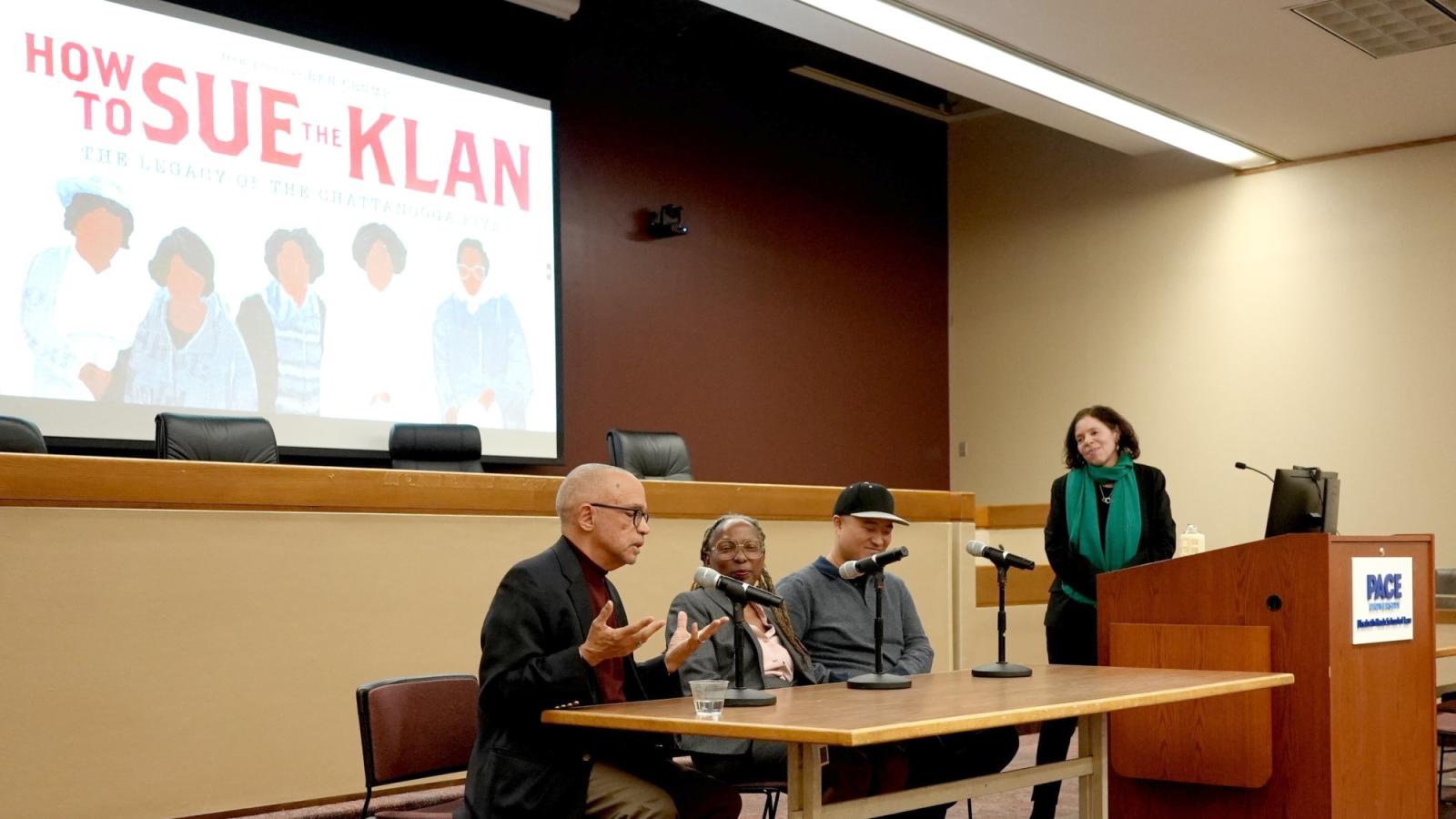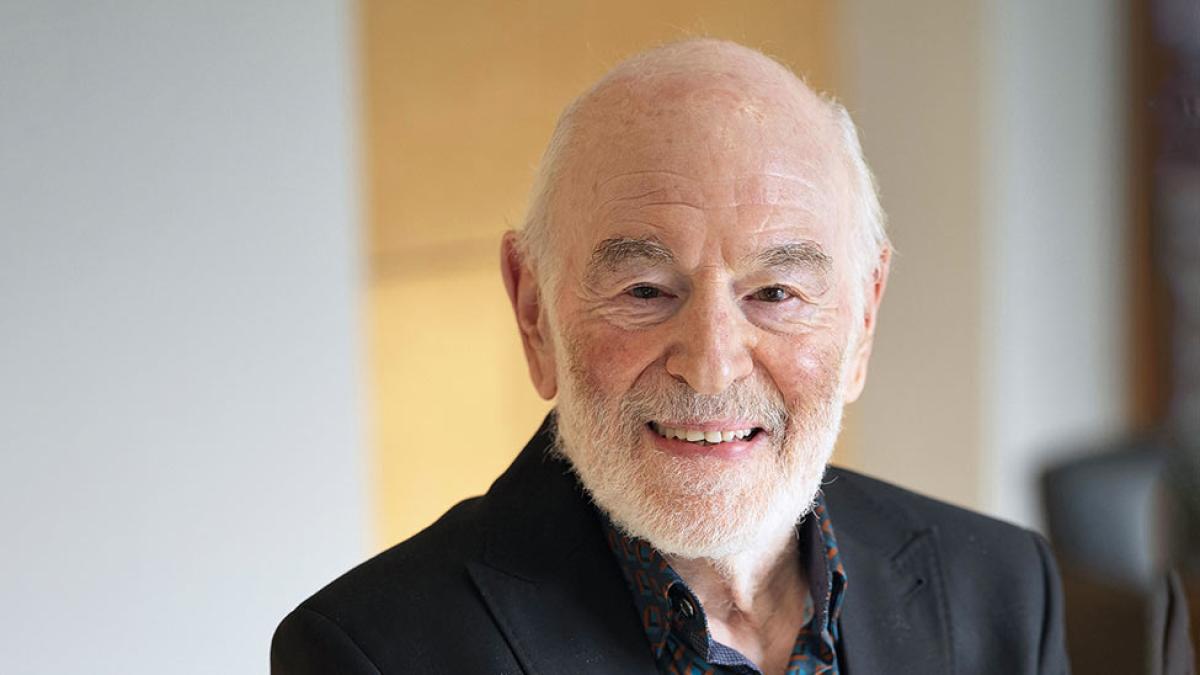The Elisabeth Haub School of Law at Pace University’s Alternative Dispute Resolution (ADR) Team earned a Top 4 Semifinalist finish at the 19th annual Tulane International Baseball Arbitration Competition, held January 15–16 at Tulane University Law School.
“How to Sue the Klan” Film Features Haub Law Professors and their Groundbreaking Civil Case

The Elisabeth Haub School of Law at Pace University hosted an advanced screening of a new documentary, “How to Sue the Klan,” attended by a packed auditorium of students, faculty, staff and members of the community. The film, inspired by a groundbreaking civil case in 1980 led by Professor Randolph McLaughlin, along with Adjunct Professor Betty Lewis, tells the story of five black women shot in Chattanooga, Tennessee by Ku Klux Klansmen.
In criminal court, an all-white jury acquitted two of the Klansmen and the third served just six months. Civil unrest followed the verdict, sparking national attention and that of the Center for Constitutional Rights (CCR) in New York City, which had been waiting for the right opportunity to use a new legal strategy against hate groups in civil court.
Haub Law Professor Randy McLaughlin, a CCR attorney at the time, and his legal team which included Adjunct Professor Better Lewis, brought the shooters to federal civil court on behalf of the women. The trial was Professor Mclaughlin’s first in court, and the very first legal case for Professor Lewis. Using incredible legal ingenuity, Professor McLaughlin successfully argued that the women were entitled to compensation based on a post-Civil War law called the 1871 Ku Klux Klan Enforcement Act. It allowed the prosecution of civil rights violations in federal civil court, which meant that survivors could still sue for damages in civil court when the criminal court failed.
They won the case, setting a historical legal precedent that allowed more racial violence cases to be tried in civil courts with the same statute, chipping away at the Klan’s funding and power over time. Today, the precedent set is still used to fight hate in a time when racial violence is again on the rise.
“What we did here was different than any other case against the Klan,” McLaughlin said. “We not only got a damage award, we got in injunction that suspended future Klan acts of violence.”
The film, directed and produced by John Beder and backed by acclaimed Civil Rights Attorney Ben Crump, recently premiered in Chattanooga and is making its way across the country. Haub Law was among the first locations to screen the film, which also included a panel discussion with the film producer and Professors McLaughlin and Lewis. It is the producer’s hope to share this story at law schools and other civic centers across the country to help honor the story of the five brave women who took on the Klan and the significance of what this case has meant for future acts of injustice.
“My hope is that this film will help inspire both lawyers and young people to use their voice against acts of hate and racism,” said Professor McLaughlin. “If everyone does even a small part to fight against injustice like these women did, we can make change in our society.”


